Tips for your eCommerce
by Jess Erdman, Content Marketing LeadFebruary 2023

Ecommerce search enrichment refers to the process of enhancing product data with additional information to make the search and discovery process more efficient and even delightful.
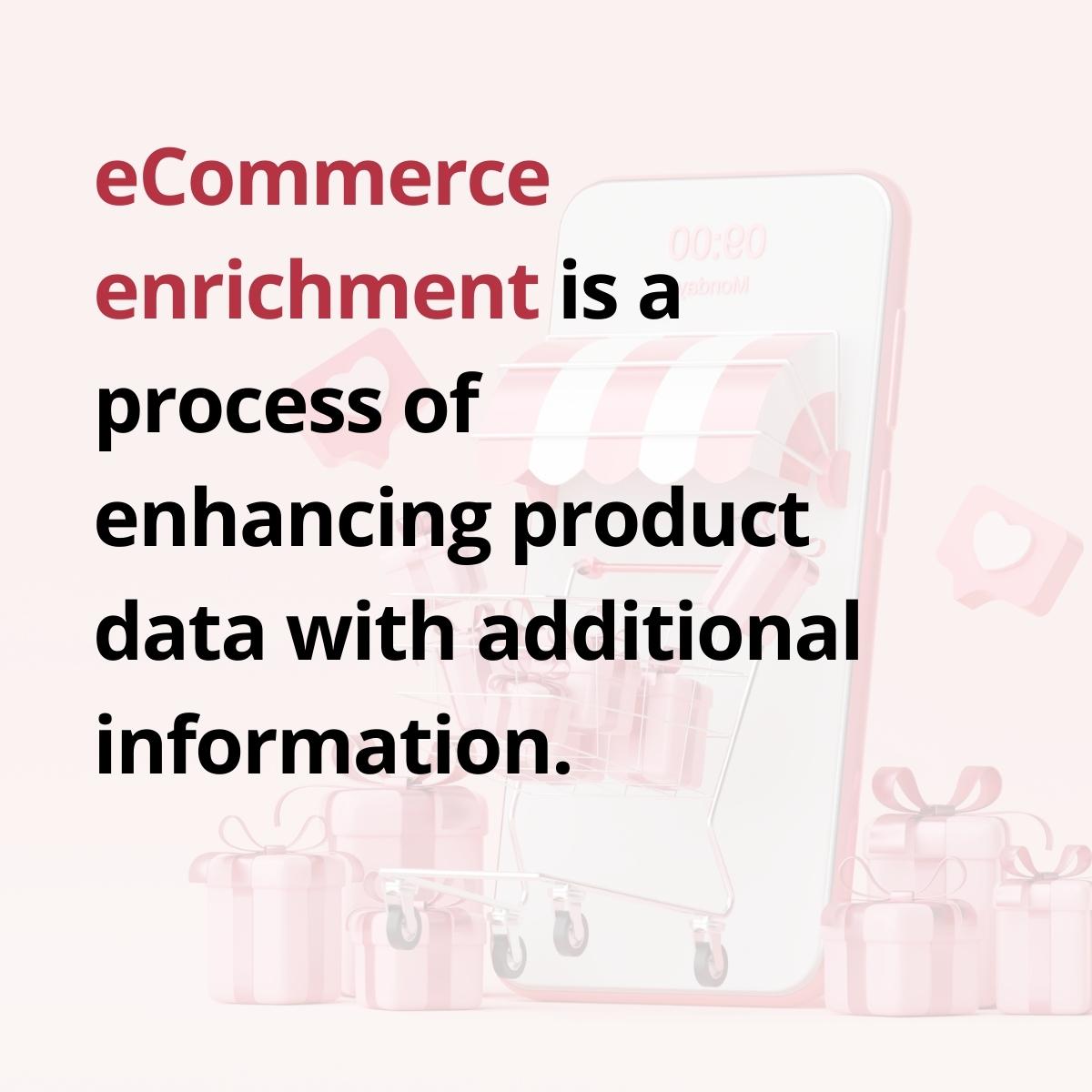
Here are some benefits:
Improved product visibility: More prominent products in search results, making it easier for potential customers to find and purchase the product.
Enhanced product information: By enriching product data with additional information such as product descriptions and specifications, eCommerce brands can update filters and text search.
Personalization: Every shopper loves to see personalized product recommendations. When there’s robust product data to build recommendations, the outcome is better, more accurate recommendations.
Improved discoverability: No more confusion over product details, or how to find a product. When shoppers use filters or type in search queries, they receive the relevant products based on their query and product attributes.
Differentiated Product Catalogs: By enriching product data with unique features and attributes, eCommerce brands can stand out from competitors with robust, feature-rich product catalogs that appeal to shoppers.
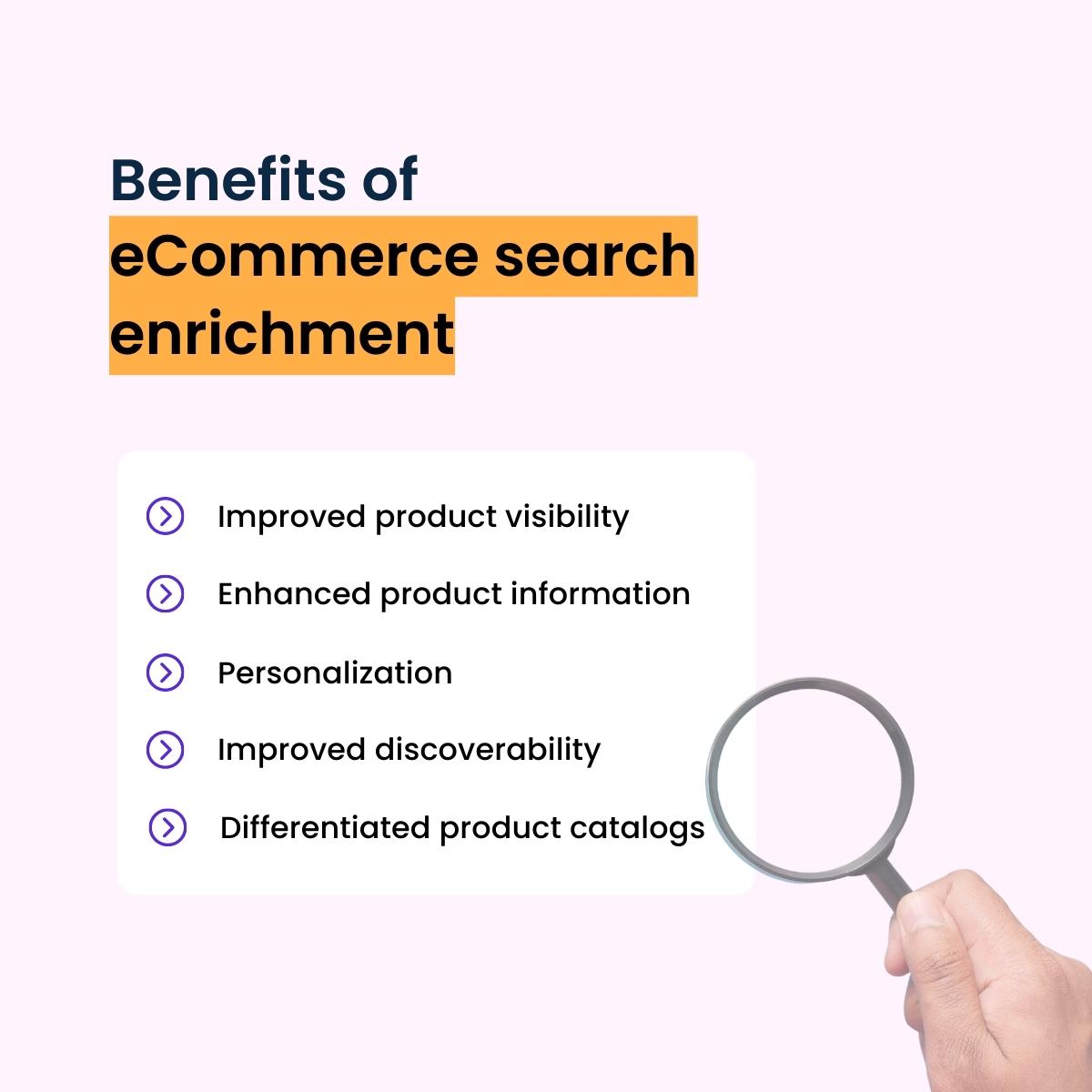
But, eCommerce search enrichment isn’t easy for retailers that are missing tagging data.
The benefits of eCommerce search enrichment are clear, but seem unattainable to many retailers who struggle with high volumes of new products, incomplete product information, and inconsistent product tags from third-party vendors.
Are you interested in learning more about eCommerce search enrichment? Schedule a free 20-min consultation
While fashion tagging can be a powerful tool for eCommerce success, it is not without its challenges, often due to a lack of standardization and consistency in the tagging process.
For example, one tagger may categorize a shirt as "button-down," while another tagger may categorize the same shirt as "dress shirt."
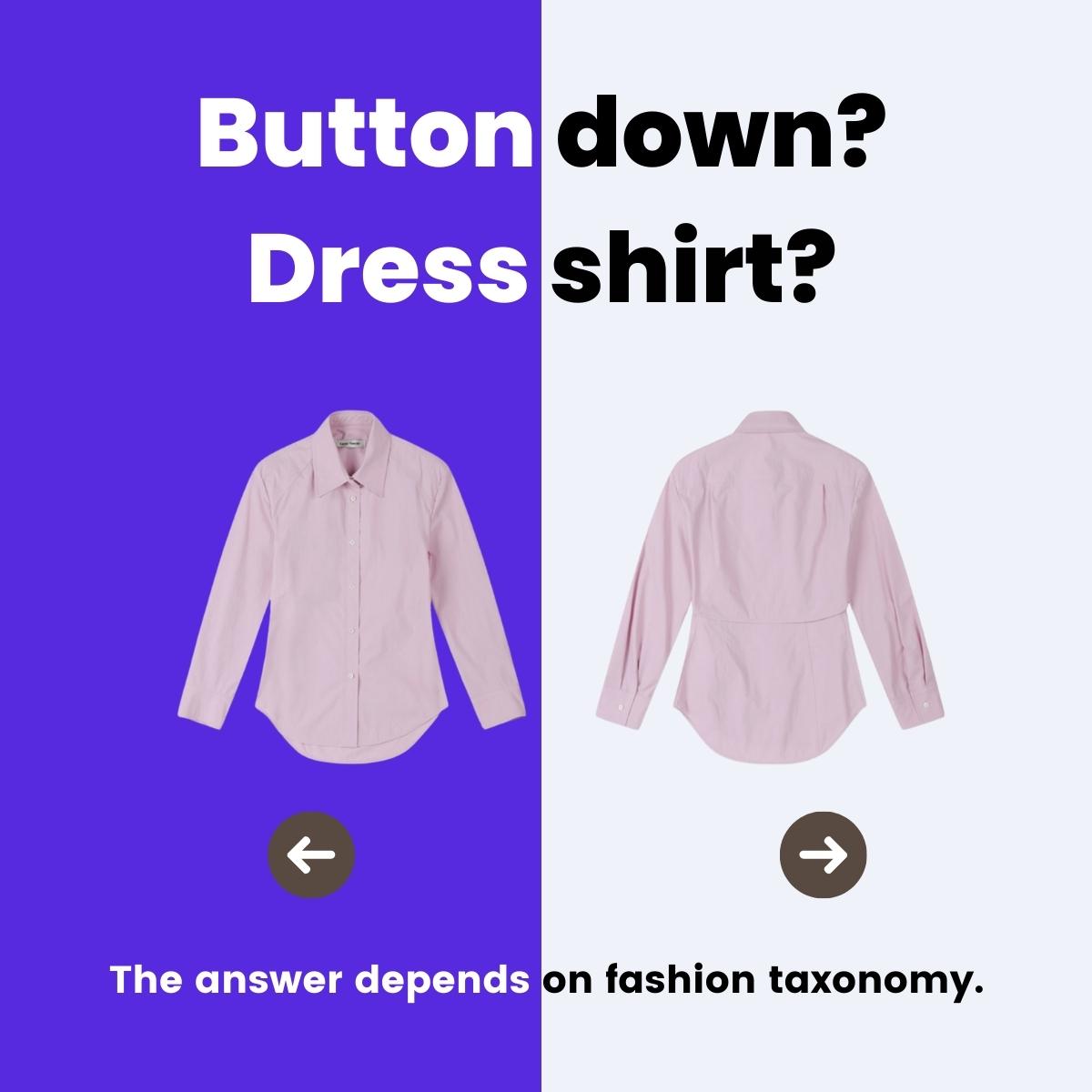
This inconsistency makes it difficult for customers to find the products they are looking for, and is just as challenging for retailers to analyze their data and make informed decisions.
Another challenge faced by retailers is the sheer volume of products they must tag. With thousands or even millions of products to categorize and label, it can be a daunting task for retailers to keep up with the demand.
Is there any other way to enrich product data without painstakingly, manually tagging each new product?
The answer: AI tagging.
What is AI Tagging?
AI tagging involves training an algorithm with data to recognize patterns and characteristics in images and text. Once the algorithm has been trained, it can analyze images and text to identify key features and assign relevant tags. The algorithm learns through a process of trial and error, where it compares its predictions to actual human-labeled data to improve its accuracy.
What is the technology behind AI tagging?
It uses computer vision and natural language processing (NLP) to analyze and tag images and text. This process is used to categorize products and make them easier to find on a website. With AI tagging, retailers can automatically assign product tags to their inventory without the need for manual intervention.
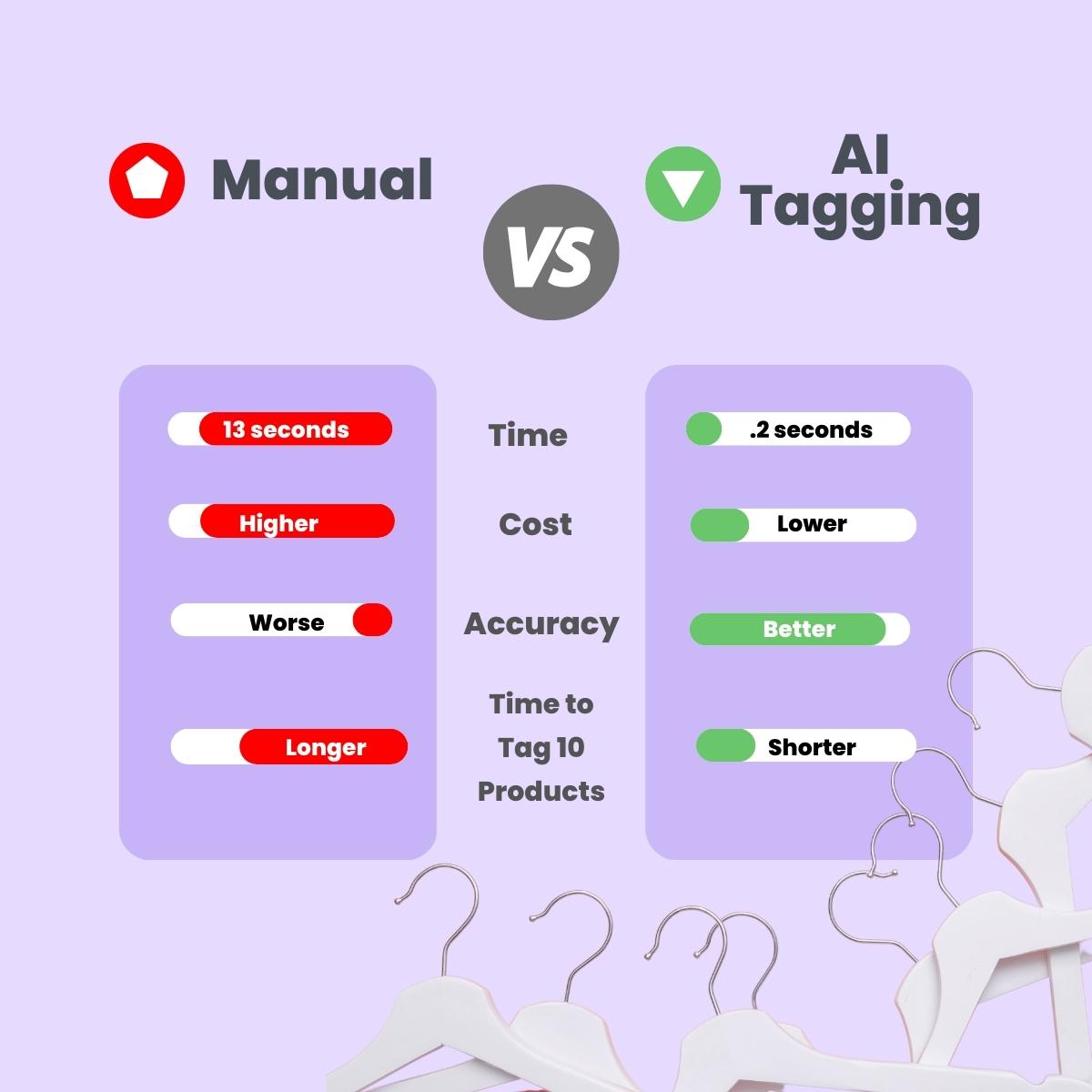
Each AI tagging tool is trained differently–for example, YesPlz AI’s tagging is trained by:
1) Defining the key product attributes through user interviews
2) Training the AI with image and text
3) Fashion experts correct the AI’s mistakes
4) Providing eCommerce data enrichment and output to retailers
Strong AI tagging leads to eCommerce search enrichment by offering:
More search discoverability: When products are accurately categorized and tagged, they are more likely to appear in search results and be easily discoverable in filters, text search, and when browsing category pages.
Enhanced product descriptions: By analyzing the text of product descriptions and images, AI can identify key features and attributes and use them to create more detailed and accurate descriptions. This helps customers make more informed purchasing decisions and leads to better customer satisfaction.
Better product recommendations: With more accurate product tags, algorithms can make personalized product recommendations that are tailored to each customer's preferences. And, not all shoppers have the exact same preferences–so, when there’s richer product attributes, there’s a higher probability of matching to shoppers’ specific tastes. With AI tagging more product attributes, then optimizing recommendations based on user behavior, shoppers receive top-quality recommendations.
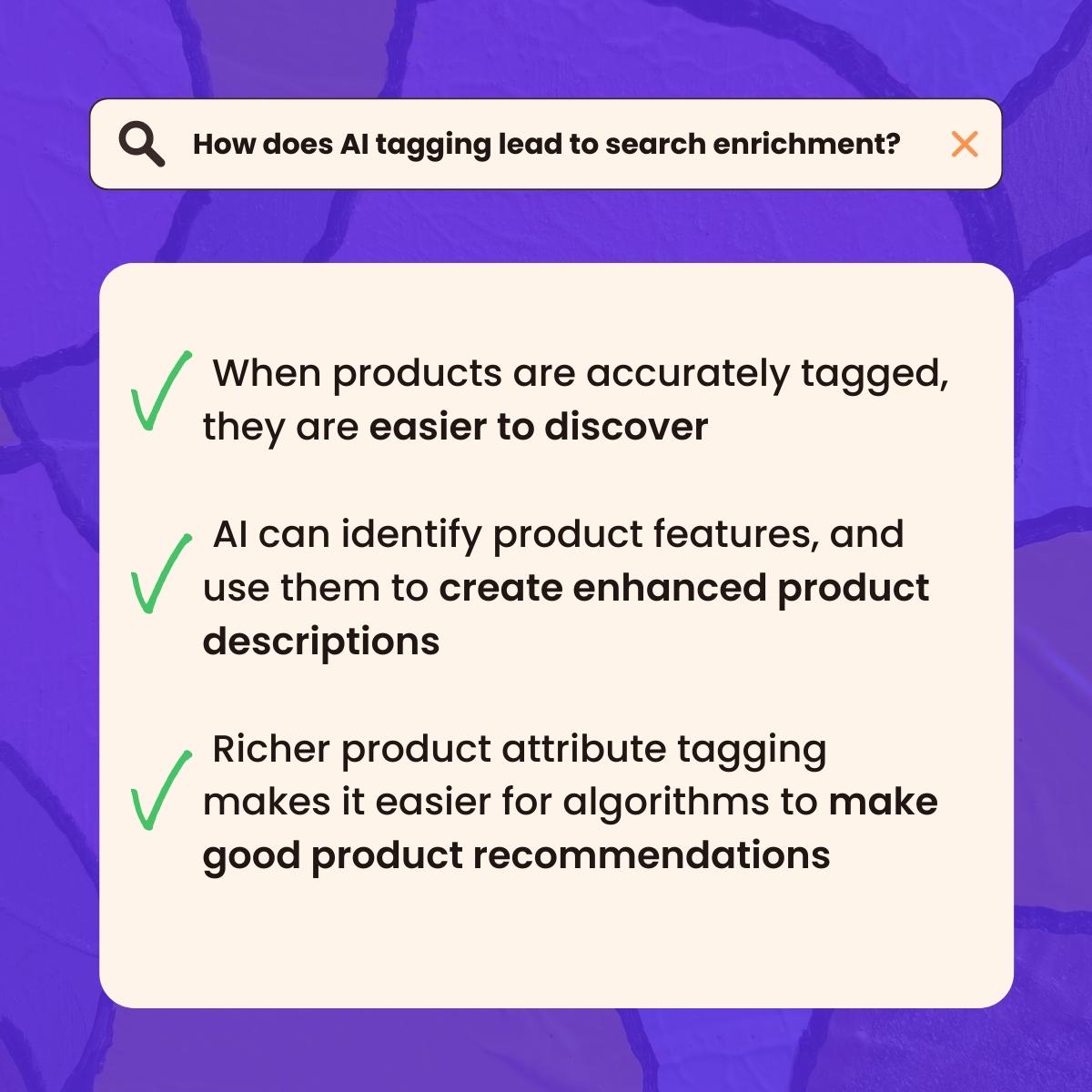
AI tagging is a powerful tool that can help retailers achieve search enrichment in eCommerce.
By using artificial intelligence and machine learning algorithms to categorize and tag products, retailers can improve product discoverability, recommendations, and descriptions. As eCommerce continues to grow, AI tagging will become an increasingly important tool for businesses to stay competitive and stand out in the digital marketplace.
Written by Jess Erdman
Content Marketing Lead
I'm passionate about creating cool content. The best part? I get to learn new things about fashion tech and ecommerce everyday. Have an idea or opinion about this article? Reach out at jess@yesplz.ai

Inconsistent tags hurting sales? Self-service product tagging delivers accuracy and speed without enterprise prices. Tag products 10x faster at 90% lower cost.
by YesPlz.AI

We analyzed 13,374 fashion searches. AI tagging increased product discovery by 22% and boosted clicks by 11%. Here’s what the data revealed.
by YesPlz.AI